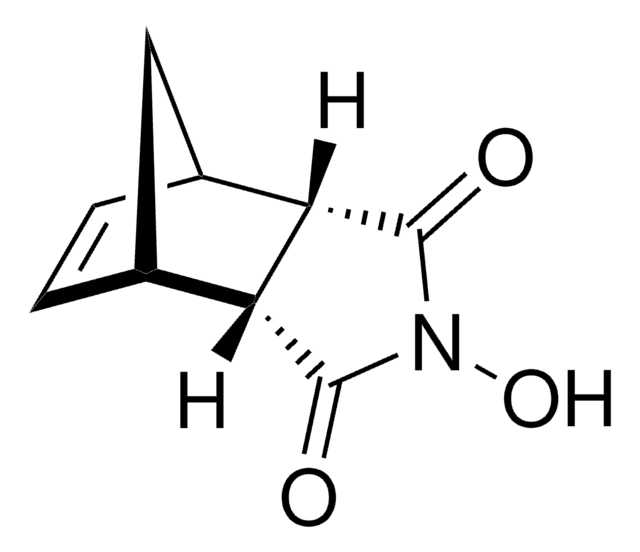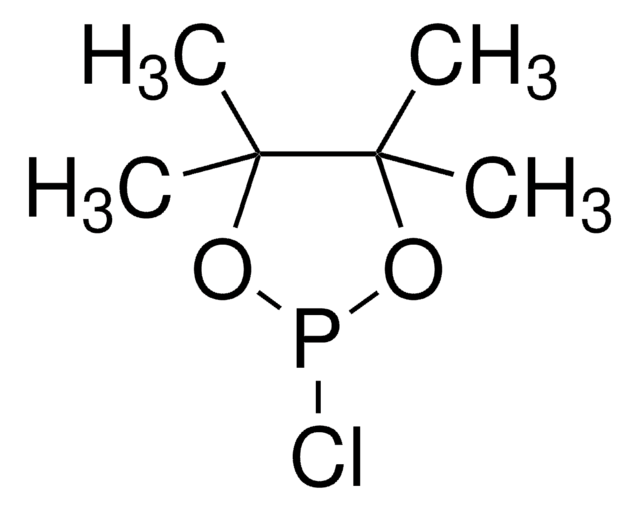238538
Cerium(III) nitrate hexahydrate
99% trace metals basis
Synonym(s):
Cerium trinitrate, Cerous nitrate hexahydrate, Nitric acid cerium salt
About This Item
Recommended Products
Assay
99% trace metals basis
form
crystals and lumps
reaction suitability
reagent type: catalyst
core: cerium
impurities
1-2% La
SMILES string
[Ce+3].[H]O[H].[H]O[H].[H]O[H].[H]O[H].[H]O[H].[H]O[H].[O-][N+]([O-])=O.[O-][N+]([O-])=O.[O-][N+]([O-])=O
InChI
1S/Ce.3NO3.6H2O/c;3*2-1(3)4;;;;;;/h;;;;6*1H2/q+3;3*-1;;;;;;
InChI key
QQZMWMKOWKGPQY-UHFFFAOYSA-N
Looking for similar products? Visit Product Comparison Guide
Related Categories
General description
Application
Ceria is one of the best studied materials-platforms for catalysis and solid oxide fuel cells. Consequently scientists have developed well-controlled synthetic protocols using cerium (III) nitrate hexahydrate for preparing ceria nanoparticles including nano cubes, nanotubes, and nanorods. The tailorable synthesis facilitates using ceria as a catalyst support, for example leveraging the porosity of the microstructure to impregnate metals and metal alloys, or for example synthesizing ceria-based materials like ceria-zirconia.
Signal Word
Danger
Hazard Statements
Precautionary Statements
Hazard Classifications
Aquatic Acute 1 - Aquatic Chronic 1 - Eye Dam. 1
Storage Class Code
5.1B - Oxidizing hazardous materials
WGK
WGK 2
Flash Point(F)
Not applicable
Flash Point(C)
Not applicable
Personal Protective Equipment
Choose from one of the most recent versions:
Certificates of Analysis (COA)
Don't see the Right Version?
If you require a particular version, you can look up a specific certificate by the Lot or Batch number.
Already Own This Product?
Find documentation for the products that you have recently purchased in the Document Library.
Customers Also Viewed
Articles
The rare earth elements impact nearly everyone in the world. All of the people living in advanced technological countries and almost all those living in third world countries utilize the rare earths in their everyday living—the car that one drives (gasoline is refined from oil using rare earth catalysts and catalytic converters reduce the polluting emissions from the automotive exhaust), watching the news on TV (the red and green colors in TV screens), the telephones and computers we use to communicate (the permanent magnets in speakers and disc drives), just to name a few examples.
Our team of scientists has experience in all areas of research including Life Science, Material Science, Chemical Synthesis, Chromatography, Analytical and many others.
Contact Technical Service












